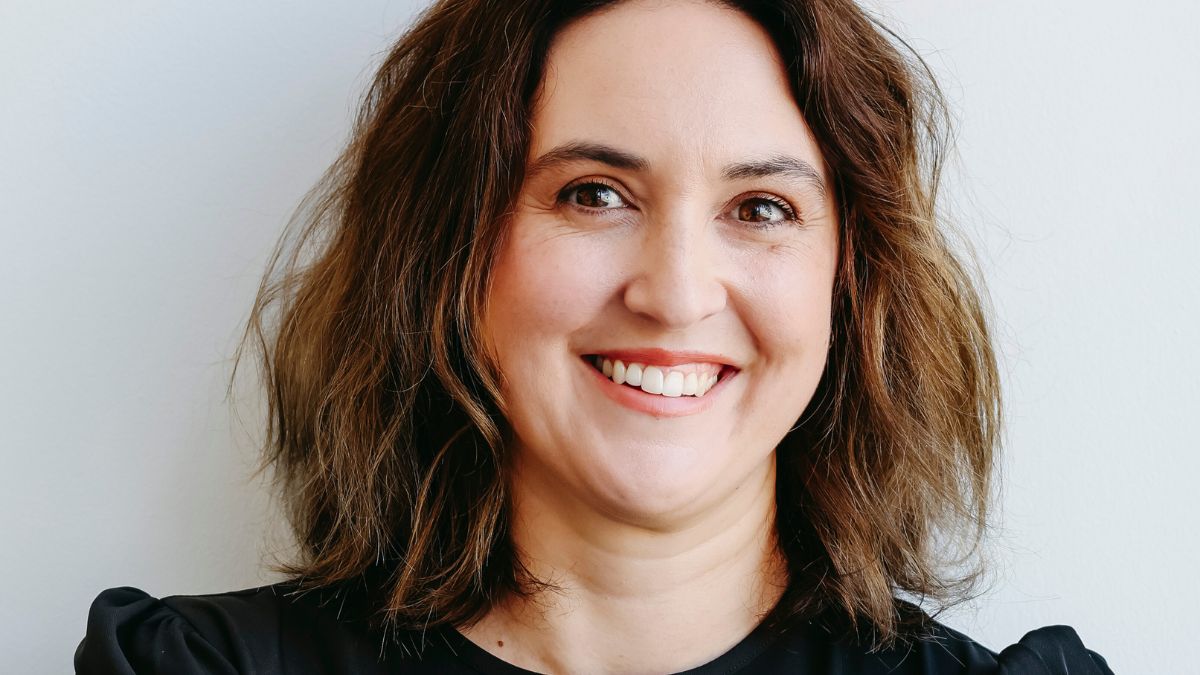The Service Business Paradox
January 2020. Cara McLeod returns from maternity leave with a six-month-old to become CEO of Mahlab.
Seven weeks later, COVID hits.
You couldn't script worse timing if you tried.
But here's what's fascinating: that chaos became Mahlab's unexpected catalyst for international growth. Suddenly, clients didn't care where the team was located. Geography became irrelevant. And a Sydney-based agency found itself competing for global briefs.
Which created an entirely new problem.
The Service Business Trap
Mahlab does bespoke strategy work for member-based organizations and associations. Everything is custom. Every brief is unique. Every project requires people—smart, skilled people who understand the nuance of their clients' worlds.
More growth means more headcount. More headcount means more complexity. More complexity means...well, you see the problem.
So how do you scale what on paper looks hard to scale?
That's the question Cara brought to the latest Handpicked episode. And if you're running any kind of service business—whether it's consulting, creative work, professional services, or specialized expertise—this dilemma probably keeps you up at night too.
The Three Questions Every Service Business Owner Must Answer
In our conversation, Cara asked three questions that I think every service business CEO grapples with at some point:
1. How do you differentiate in a global marketplace?
When you're suddenly competing worldwide, standing out becomes exponentially harder. You're no longer the best in your city or even your country—you're up against everyone, everywhere.
Cara's watching this unfold in real-time as Mahlab competes for regional and international briefs. The opportunities are bigger, but so is the noise.
I shared a strategy that worked for one of my most successful Shark Tank investments—but you'll need to listen to the episode to hear how they cracked multiple international markets relatively quickly. (Hint: it wasn't by going it alone.)
2. Can you turn custom services into scalable products?
This is the holy grail question for service businesses. Is there a way to productize your expertise without losing what makes you special?
Cara's exploring how Mahlab might digitize some of their IP or create more self-serve offerings. But as she rightly points out—this isn't their skillset. They're brilliant at bespoke strategy, not building products.
So where do you even start?
In the episode, I walk through a framework I use at Big Red Group: the critical "build or buy" question that changes everything. I also share why innovating from within an established business is so much harder than people realize—and what to do about it.
3. How do you test international markets without losing focus?
Mahlab has deep expertise with member-based organizations in Australia. That expertise is absolutely transferrable to the UK and US markets. But how do you test that opportunity without overcommitting resources or taking your eye off your home market?
This is where I see so many businesses stumble. They either go all-in too quickly and spread themselves too thin, or they never test at all because they're afraid of distraction.
There's a middle path. And it's all about leveraging what you already have.
What I Didn't Expect About This Conversation
What struck me about Cara's journey is how she stepped into the CEO role after five years of learning the business from the inside. She had two children during those first five years, took maternity leave twice, and came back each time to continue building toward this transition.
That's not the typical founder-to-CEO handover story you hear about.
The founder, Bobbi Mahlab, moved into the Chair role, and Cara stepped into the day-to-day operations. Five years later, they're still navigating that relationship—and it's working.
But how do you make that transition smooth? What does it take to work with a founder as Chair when you're the one running the show?
We dig into this in the episode, and Cara's insights are incredibly valuable for anyone in a similar position—or any founder thinking about succession planning.
The Partnership Model That Changes Everything
I'll give you one piece of gold from the episode: when you're looking at international expansion, cold calling is not your friend.
What works? Warm referrals through existing clients.
Think about it: if Mahlab works with Engineers Australia, who do they know internationally? What global associations are their clients part of? Where are the natural connection points?
This is exactly how we approached expansion at RedBalloon. I'll never forget going to a hot air balloon operator and asking: "Who's in your association? How do I get connected around the country?"
Because at the end of the day, business is about relationships. Always has been, always will be.
But there's more to this strategy than just asking for referrals. In the episode, I share specific tools and approaches—including a prospecting tool called Apollo and how we use it for warm leads, not cold outreach.
The Question That Changes How You Build Your Business
Here's something I said to Cara that applies to every service business owner:
"Should we build or should we buy?"
This single question changes how you think about innovation, scale, and growth. Especially when you're trying to move from pure service delivery to something more scalable.
The answer isn't always obvious. Sometimes building makes sense. Sometimes buying or partnering is smarter. And sometimes—and this is important—you shouldn't do either yet.
I explain the full framework in the episode, including when each option makes sense and how to evaluate which path is right for your business at your stage.
Why Service Businesses Are at an Inflection Point
We're seeing something interesting happen globally: service businesses with deep expertise are having their moment.
But they're also hitting a ceiling. The traditional model of "more clients = more people = more revenue" doesn't create the kind of scale that venture capital or even private equity finds interesting.
Yet these businesses are incredibly valuable. They have IP, relationships, expertise, and often dominant positions in specific niches.
The question is: how do you unlock that value without compromising what makes you special in the first place?
The Founder-to-CEO Transition Nobody Talks About
One more thing that makes this episode valuable: Cara's perspective on becoming CEO of a founder-led business.
She's not the founder. She joined at an inflection point and grew into the role over five years. That's a very different journey than the typical founder story—and honestly, it's probably more common than we acknowledge.
How do you step into a CEO role when the founder is still very much present? How do you balance respect for what's been built with the need to evolve and grow? What works and what doesn't in that dynamic?
These are questions that don't get asked enough. And Cara's lived experience offers a roadmap for others in similar situations.
Your Next Steps
If any of these challenges resonate with you:
- Scaling custom work
- Competing in a global marketplace
- Turning services into products
- Testing international markets
- Working with or transitioning from a founder
Then this episode is essential listening.
Cara asks questions I bet you've been thinking about. And while I've given you some frameworks here, the real value is in the full conversation—where we go deeper on specific strategies, tools, and approaches you can implement.
🎧 Listen to "When Custom Meets Scale" now on Spotify, Apple Podcasts, or iHeart.
And if you're facing similar challenges in your business, I'd love to hear about them. Drop a comment below—sometimes just articulating the problem helps you see the solution.
Remember: new Handpicked episodes drop every Monday. Subscribe so you don't miss the next one.
Frequently Asked Questions on When Custom Meets Scale
1. What is the biggest challenge for a founder moving a business from a custom-solution model to a scalable platform model?
The biggest challenge is the shift from a personal, hands-on control model to a system-driven, repeatable process model. The founder must be willing to sacrifice a degree of 'custom' perfection to achieve 'scalable' efficiency. This requires embedding systems, documentation, and processes that can handle volume and growth consistently, enabling the business to scale exponentially rather than linearly.
2. How did the Big Red Group (BRG) use technology to achieve scale in the experience industry?
BRG achieved scale by building a common technology platform that aggregates multiple specialized experience brands (like RedBalloon and Adrenaline). This platform allowed BRG to share back-end costs, centralize operations, and leverage pooled customer data. This strategy transformed a disparate group of custom providers into a cohesive ecosystem capable of sustained, high-volume growth.
3. Why is it vital for the board to focus on the 'customer journey' in a scaling service business?
In a scaling service business, the board must focus on the customer journey to ensure that growth doesn't erode quality. The 'custom' element of the service often disappears as scale is pursued. The board's role is to identify and protect the critical customer touchpoints (the "friction" points) that maintain quality and trust, ensuring the business retains the 'soul' of its original value proposition even at massive scale.
4. What is the role of the Non-Executive Director (NED) in balancing founder passion with professional governance?
The NED's role is to act as the custodian of the business's long-term sustainability. They temper the founder's passion and vision with strategic discipline, ensuring growth is pursued responsibly. This includes implementing formal governance frameworks, encouraging a data-driven approach to risk, and, if necessary, helping the founder transition to a strategic role that frees the operations for professional management.
5. How does a scaling business balance the need for innovation versus the need for process control?
This is a critical balancing act. A scaling business must dedicate resources (time and capital) to both. Innovation (Horizon 3) needs a separate, agile team with permission to fail and test, while process control (Horizon 1) requires continuous optimization via systems and technology. The board's role is to ensure the strategic plan allocates capital to foster both simultaneously, thereby growing the core business while exploring new avenues.





.jpeg)